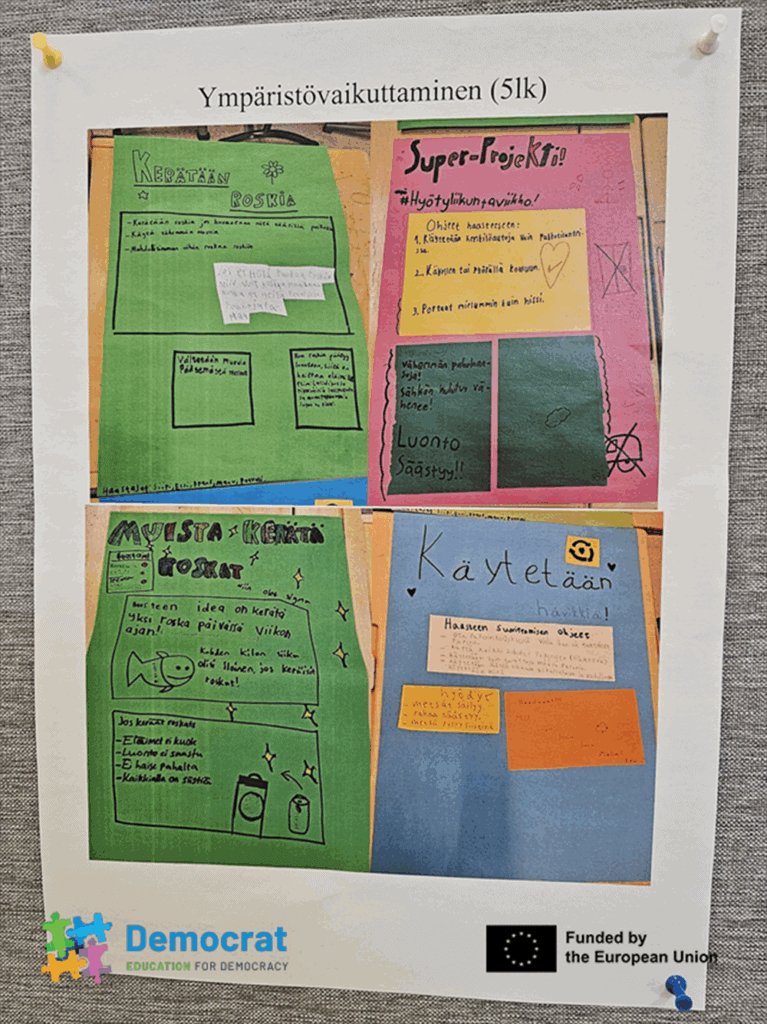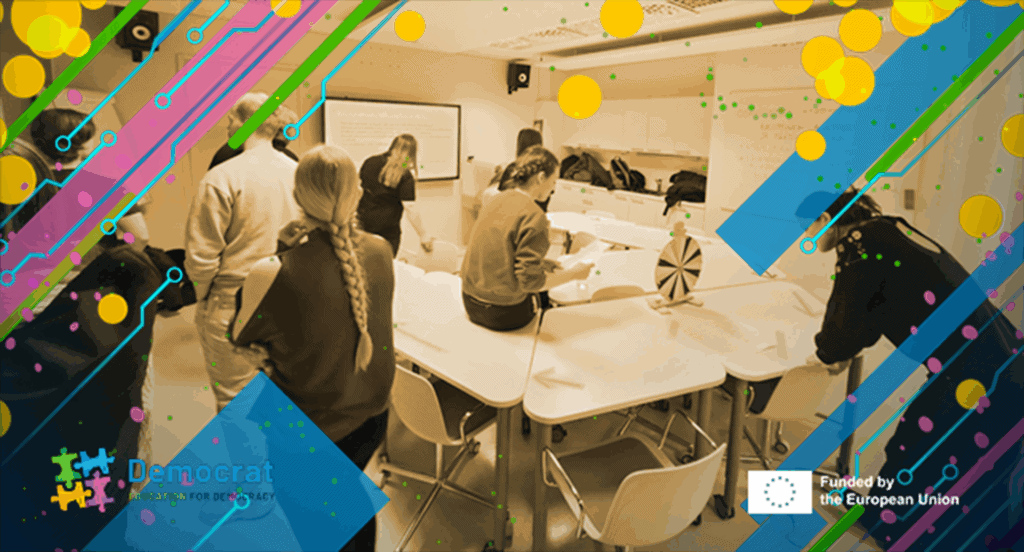Future Teachers Co-Design Democratic Learning: RDC-Based Interventions at the University of Jyväskylä
As part of the Finnish Living Lab within the EU-funded DEMOCRAT project, nearly 200 future teachers at the University of Jyväskylä participated in an ambitious university course aimed at translating democratic values into classroom practice. The course, organised for soon-to-graduate subject teachers from a wide range of disciplines, challenged the students to explore the concept of Responsible Democratic Citizenship (RDC) and to co-create interventions that promote these competencies in schools. The course uses active and phenomenon-based pedagogies (https://www.teachermagazine.com/au_en/articles/what-is-finlands-phenomenon-based-learning-approach).
Between January and March 2025, students worked in small groups to design and, where possible, implement their educational interventions in real classroom settings. The projects had to explicitly address at least one of the four RDC competencies:
• Solidary participation
• Deliberation
• Judgement and Critical thinking
• Democratic resilience
To support this process, members of the DEMOCRAT Finland team delivered a lecture and workshop introducing the project, the RDC competence framework, and the broader goals of Education for Democracy. The students were then encouraged to bring their own disciplinary expertise and pedagogical creativity into the mix, allowing future teachers to take ownership of the democratic learning process.
A VARIETY OF VISIONS – FROM CIRCULAR ECONOMY TO FAKE NEWS
The course culminated in a final “intervention fair” held in March 2025, where students showcased their projects to peers and external guests, including members of the DEMOCRAT research team. The variety and originality of the interventions highlighted the richness of RDC applications in subject teaching.
Several projects focused on media literacy and critical thinking, especially regarding social media, online misinformation, and fake news. Others tackled themes such as sustainable development, circular economy, human rights or empathy and critical thinking in digital communication.
One particularly compelling project was a learning game titled “Help Me,” which approached fast fashion from the perspective of ethical production and global responsibility. In the game, students take the role of an influencer who receives a garment with a mysterious “Help me” message sewn into its label. As the storyline unfolds, they are prompted to investigate the origins of the garment and reflect on the hidden human and environmental costs of consumer habits. Although still a prototype, the concept offers a promising example of how gamification can foster critical reflection and democratic engagement.
Other groups developed classroom tools such as value cards, discussion prompts, and interactive scenarios to help pupils practise deliberation and explore ethical dilemmas collaboratively.

BUILDING COMPETENCE – AND CONFIDENCE
The intervention projects allowed student teachers not only to learn about the RDC framework but to engage deeply with its values by designing concrete pedagogical solutions. The collaborative format also provided an opportunity to bridge theory and practice, encouraging future teachers to think about their future teaching role in terms of democratic responsibility.
During the fair, future teachers discussed their design processes, the successes and challenges of implementation, and how they envisioned integrating these ideas into their future classrooms. The DEMOCRAT team had the chance to interact with dozens of groups, gather data for the research component of the project, and provide feedback on the pedagogical innovations.
TEACHER EDUCATION AS A LOCAL PILOT PROJECT
The Jyväskylä course represents a key local pilot of the Finnish Living Lab, showing how teacher education can function as a testbed for democratic pedagogies. Engaging future teachers at this critical moment – just before they enter the profession – is a powerful strategy for scaling up the impact of RDC-based approaches across educational systems.
By empowering future teachers to become co-designers of democratic learning, the course not only contributed to their professional growth but also advanced the larger goals of the DEMOCRAT project: to develop educational systems that support resilient, inclusive, and participatory democracies.

More from Project DEMOCRAT
Developing Good Democratic Education